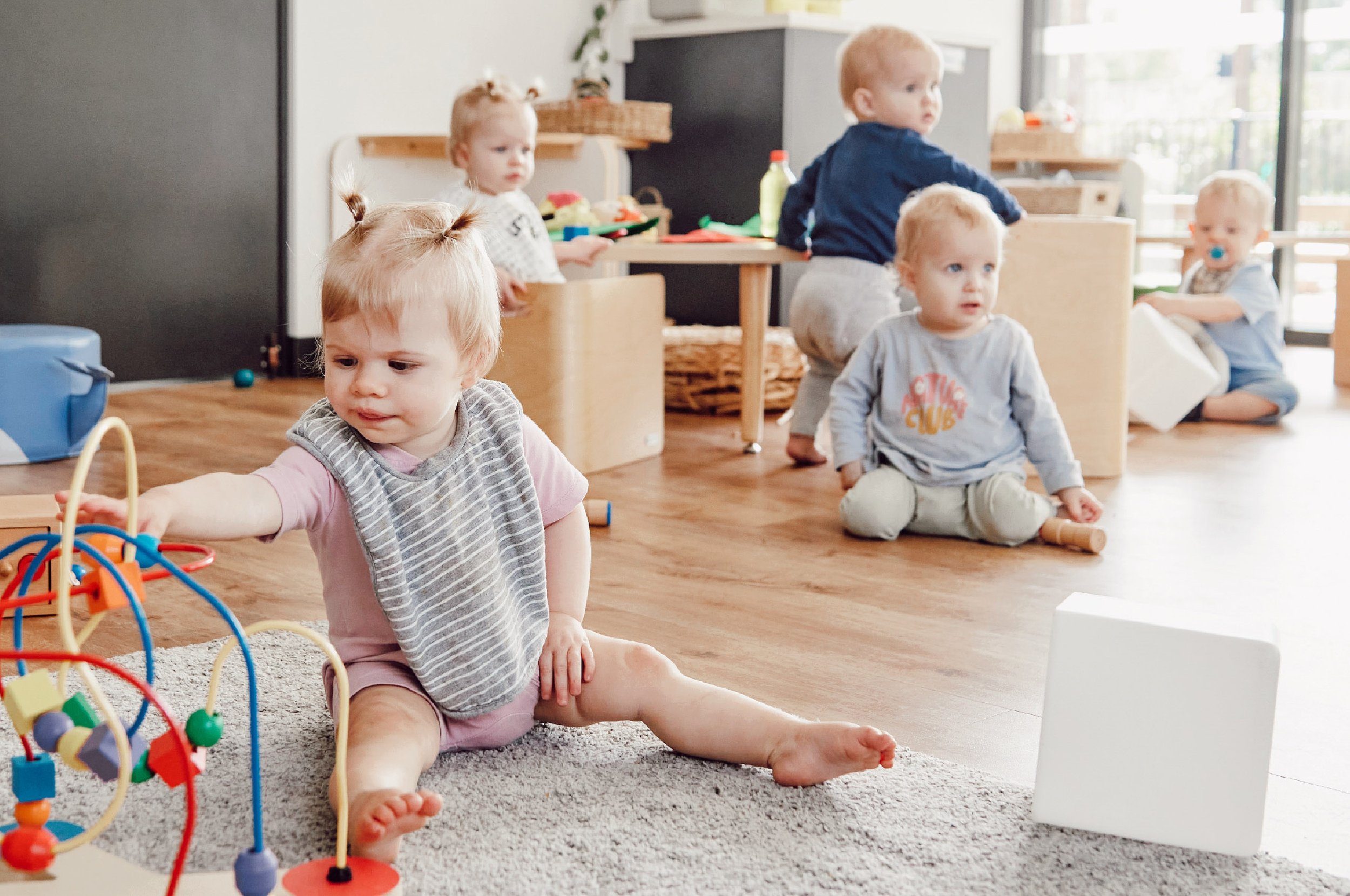
Magda Gerber’s RIE philosophy is a fundamental component of how we approach our day and learning with our under 3’s community. This philosophy is based upon respectful practices and interactions to create a calm and peaceful place for your child to build confidence in themselves and their abilities. The basic principle of RIE philosophy is respectful communication provided in an environment that encourages learning and growth. Our environments and daily routines are planned for uninterrupted play so children can explore at their own pace and interest. This uninterrupted play allows the learning process to follow the infant’s interests.
Understanding the importance of respect, trust, and acceptance allows for the creation of strong relationships in life. A strong sense of self and an even stronger connection to the people and places around them promotes amazing growth and happiness in life beginning as infants and continuing on into adulthood.
0-3'S Curriculum
RIE PRINCIPLES
RESPECT
Respect is the basis of this approach. We not only respect infants, we demonstrate our respect every time we interact with them. Respecting a child means treating even the youngest infant as a unique human being, not as an object.
THE AUTHENTIC CHILD
An authentic child is one who feels secure, autonomous, competent, and connected. When we help a child to feel secure, feel appreciated, feel that “somebody is deeply, truly interested in me,” by the way we just look, the way we just listen, we influence that child’s whole personality and the way that child sees life.
TRUST IN THE INFANT’S COMPETENCE
We have basic trust in the infant to be an initiator, to be an explorer eager to learn what they are ready for. Because of this trust, we provide the infant with only enough help necessary to allow them to enjoy the mastery of their own actions.
SENSITIVE OBSERVATION
Our method, guided by respect for the infant’s competence, is observation. We observe carefully to understand the infant’s communications and needs. The more we observe, the more we understand and appreciate the enormous amount and speed of learning that happens during the first two or three years of life. We become more humble, we teach less, and we provide an environment for learning instead.
INVOLVING THE CHILD
During care activities (feeding, bathing, dressing, nappy changes etc.), we encourage even the tiniest infant to become an active participant rather than a passive recipient of the activities. Adults create opportunities for interaction, cooperation, intimacy, and mutual enjoyment by being wholehearted with the infant during the time they spend together anyway. “Refueled” by such unhurried, pleasurable caring experiences, infants are ready to explore their environment with only minimal intervention by adults.
A SAFE, CHALLENGING, PREDICTABLE ENVIRONMENT
Our role is to create an environment in which the infant can best do all the things that the child would do naturally. The more predictable an environment is, the easier it is for infants to learn. As infants become more mobile, they need safe, appropriate space in which to move. Their natural, inborn desire to move should not be handicapped by the environment.
TIME FOR UNINTERRUPTED PLAY AND FREEDOM TO EXPLORE
We give the infant plenty of time for uninterrupted play. Instead of trying to teach infants new skills, we appreciate and admire what they are actually doing.
CONSISTENCY
We establish clearly defined limits and communicate our expectations to develop self discipline.











